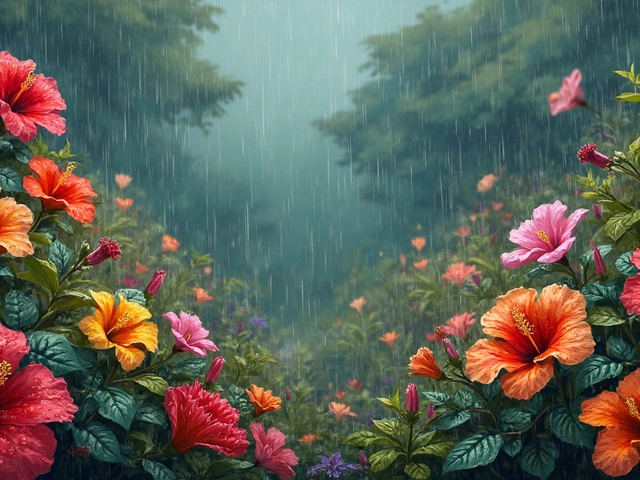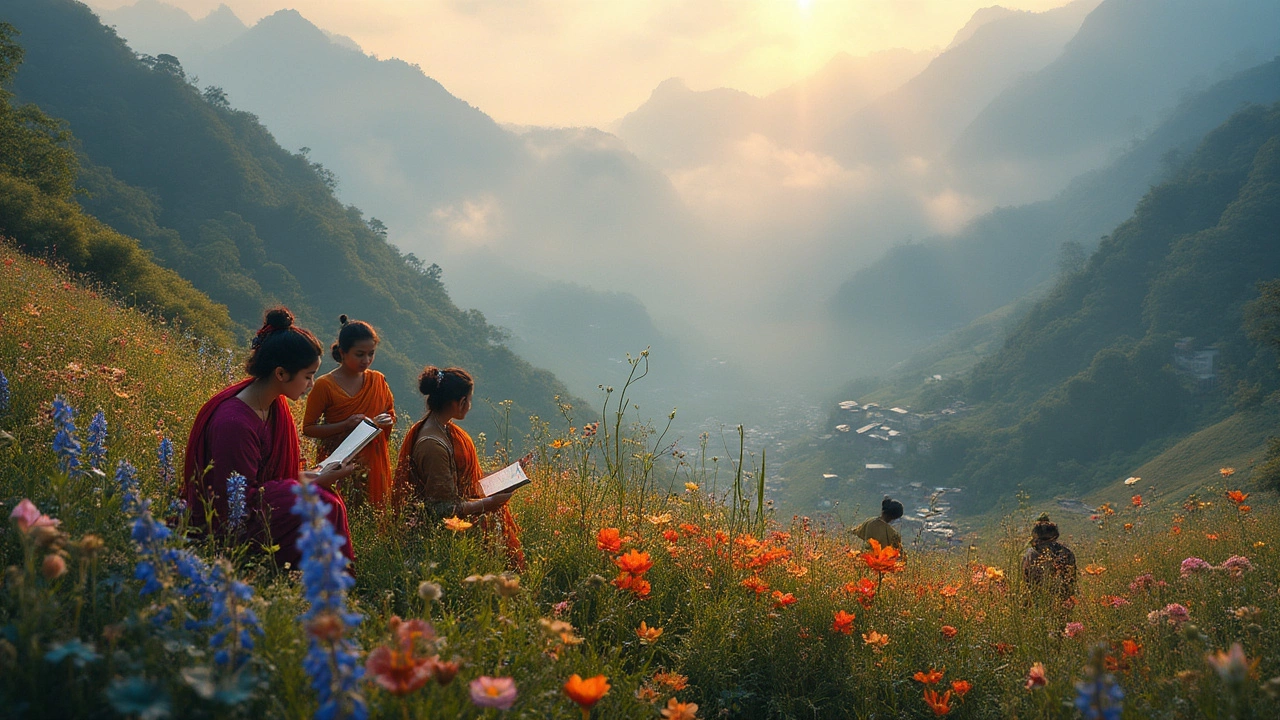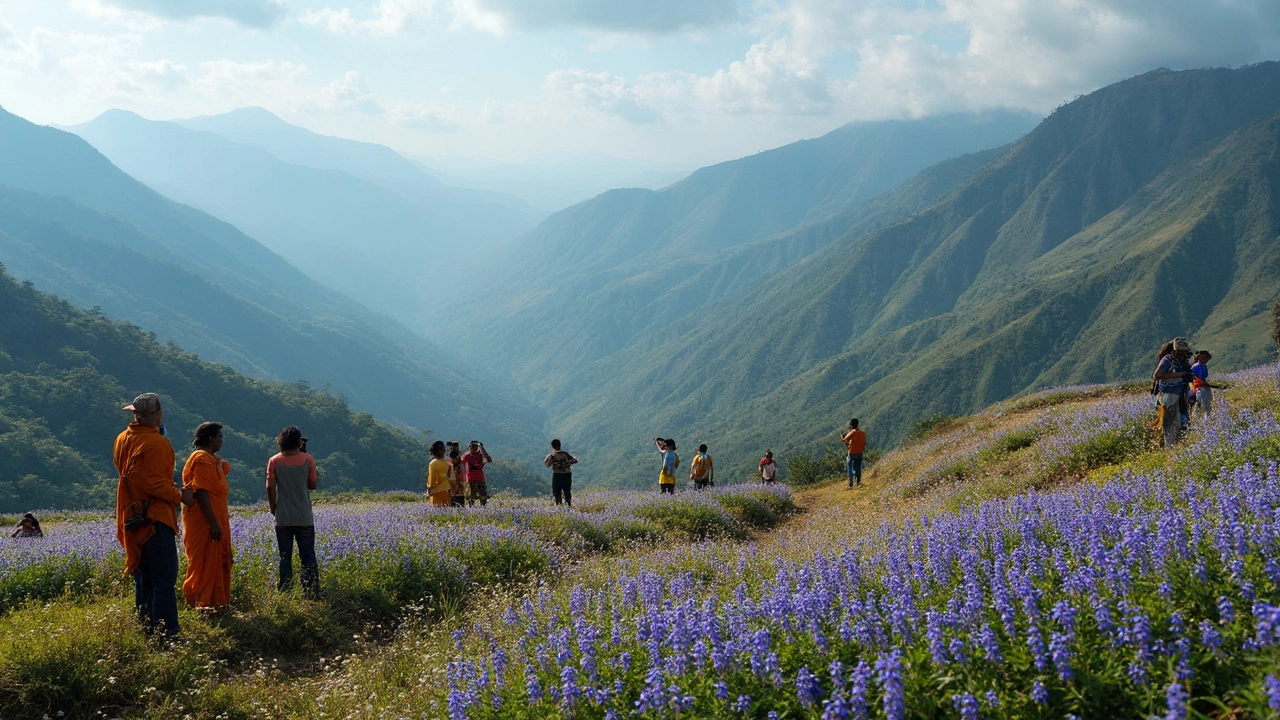Neelakurinji: The 12‑Year Blooming Star of the Himalayas
If you’ve ever heard a story about a mountain that turns blue for a few weeks, you’re probably thinking of Neelakurinji. This small shrub, known scientifically as Strobilanthes kunthiana, lives high up in the Western Ghats and only flowers once every dozen years. When it does, entire slopes look like a sea of purple‑blue, a sight that draws tourists, scientists, and devotees alike.
Why does it wait so long? The plant stores energy in its roots during the off‑years, then decides it’s time to reproduce. That massive, synchronized bloom ensures plenty of pollen and seeds, boosting the odds that at least some seedlings survive the harsh alpine conditions.
Life Cycle and the Famous 12‑Year Bloom
Neelakurinji spends most of its life as a green, leaf‑covering shrub. From about 3‑5 years old it starts a silent buildup: roots grow deeper, and the plant conserves nutrients. When the 12‑year mark hits, a hormonal trigger tells every plant in the region to flower at once. The flowers appear in dense, silvery‑blue panicles that can stretch up to 30 cm.
After the show, the plant’s above‑ground parts die back, leaving only a root system that will sprout new leaves a few months later. This die‑back is why the landscape looks barren shortly after the bloom, only to start greening again in the next season.
Growing Neelakurinji in Your Garden
Even if you don’t live at 1,500‑metre altitude, you can still enjoy this unique shrub. Here’s a quick guide:
- Climate: Choose a cool, moist spot. A garden with partial shade mimics its natural forest understory.
- Soil: Well‑draining, rich loam with plenty of organic matter works best. Add leaf mould or compost to improve texture.
- Water: Keep the soil consistently damp but not soggy. During the dry season, a slow drip irrigation system helps maintain moisture.
- Planting: Space seedlings about 30‑40 cm apart. This gives each plant room to spread its roots without competing too hard.
- Patience: Expect the first major bloom only after 8‑10 years. In the meantime, the shrub provides attractive foliage and helps prevent soil erosion.
Because the bloom cycle is so long, many growers treat Neelakurinji as a living heritage plant rather than a quick garden show. Supporting it with mulching, occasional fertilising with a balanced NPK blend, and protecting it from grazing animals will keep the root system healthy.
Beyond beauty, Neelakurinji holds cultural value. In Kerala, the bloom is linked to folk songs and traditional festivals, and the flowers are used in local medicines. Knowing these stories adds another layer of appreciation when you see the hills turn blue every dozen years.
If you’re curious, check local botanical gardens or mountain trekking groups for planting events. Sometimes institutions share seedlings when a bloom year is near, giving enthusiasts a chance to be part of the next cycle.
So whether you’re a hobbyist looking for a conversation starter, or a nature lover wanting to preserve a rare species, Neelakurinji offers a rewarding challenge. Plant it, tend it, and in a decade or two you’ll witness one of India’s most spectacular natural events right from your own backyard.
Rare Flowers Found Only in India: Unveiling the Subcontinent's Unique Blooms
Explore India's unique flowers found nowhere else on Earth. Dive into their history, where to see them, their uses, and why they matter.
Rarest Flower in India: What Makes the Neelakurinji So Unique?
Dig into the fascinating story of India's rarest flower, the Neelakurinji. Find out what makes this flower a true marvel and why it grabs the attention of gardeners and nature lovers. Get helpful tips if you’re hoping to spot it during its rare bloom. Learn about the challenges behind its survival and what actually threatens its existence. Perfect for anyone curious about rare Indian plants or wild gardening.
About
Sustainable Gardening, Flower Gardening
Latest Posts


Gardening Enthusiasts and Sustainable Green Thumbs
By Alden Thorne Feb 18, 2025
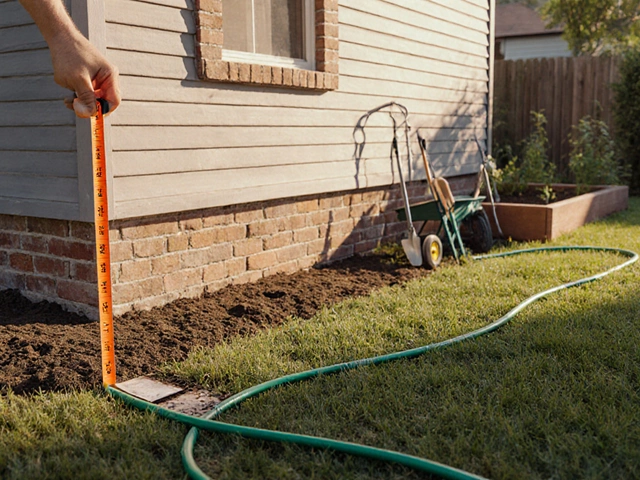
How Far Should a Garden Be From Your House? Practical Setback Guidelines
By Alden Thorne Oct 20, 2025
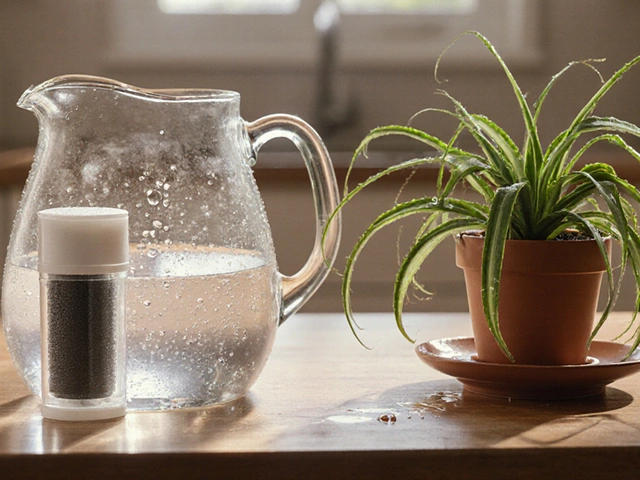
What Is the Best Water for Houseplants? A Practical Guide
By Alden Thorne Oct 16, 2025
